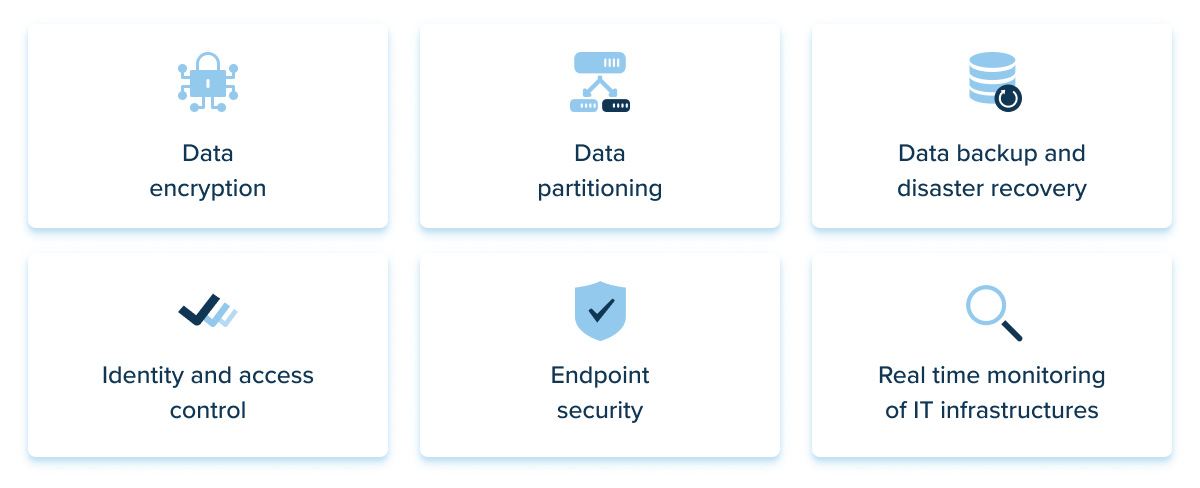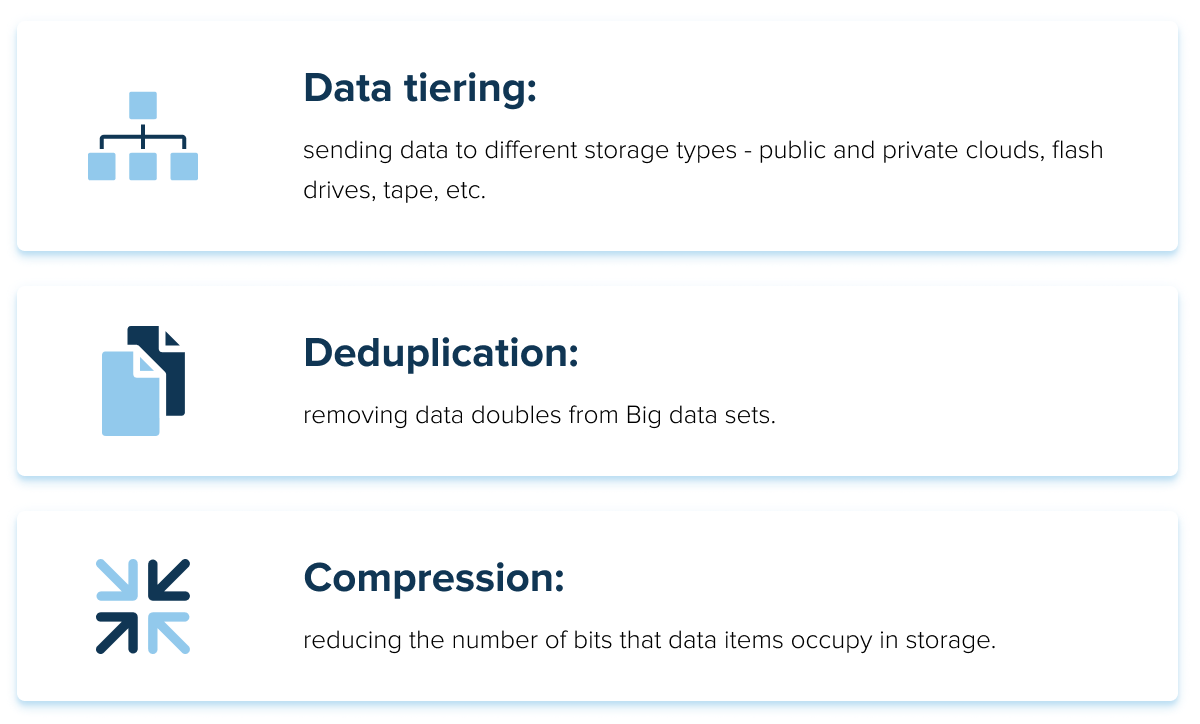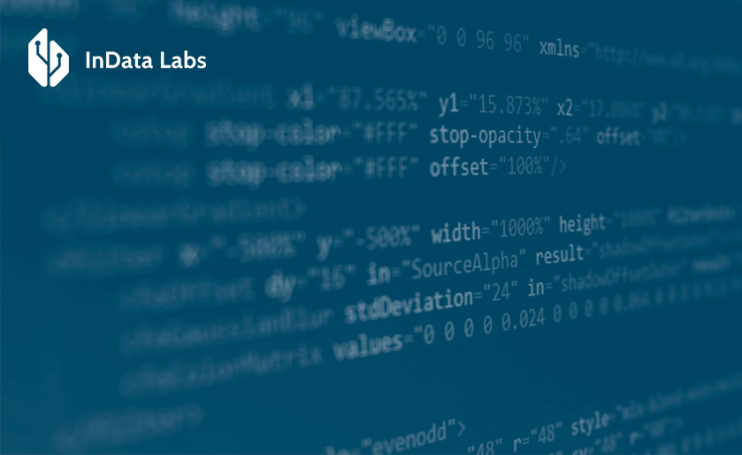As organizations become increasingly data-driven and with the development better computer performance and larger data storage, the groundwork for the next evolutionary step was made possible. Big data took off and started to expand into new domains.
In this post, we explain critical Big data problems and solutions that organizations should be aware of.
Understanding Big data issues: What is Big data?
The IT world is full of definitions that can be challenging to understand, even for industry professionals. To avoid confusion, let’s define what Big data is before proceeding with the topic.
Simply put, Big data means an enormous amount of digital information that an organization can analyze to discover patterns, for example, in clients’ behavior. Those revealed patterns then become foundations for profit-oriented decisions and further business development plans.

Source: Unsplash
Problems Big data can solve vary from improving one’s experience with the Windows UI to the colonization of Mars, building the fastest tourism route and understanding the influence of cultural factors on the customer’s behavior.
Therefore, the core idea of the Big data concept is to help with grounded decision-making to optimize existing workflows and introduce new ideas.
The 6 V’s of Big data:
- Volume: The total size of data (nowadays, it’s measured in peta- or even exabytes of data in one data set)
- Velocity: The data’s flow speed
- Veracity: The data’s validity
- Variety: The data’s nature (structured and unstructured formats)
- Value: The opportunity to receive profitable conclusions from analyzing the data
- Variability: The scale and speed of data transformation, obsolescence and refreshment.
Big data problem examples
The idea of Big data sounds excellent and can work well in perfect conditions. However, despite all the benefits that Big data can bring, a question arises: What are the problems associated with Big data?
The number of Big data problems to solve is great and increasing, but the top 6 data science challenges can and should be highlighted. Further in this post, we review six critical problems with Big data that organizations need to address regardless of their size and industry.
Wrong treatment of Big data
Organizations treating Big data wrongly risk failing on different levels. The typical examples of Big data problems include an employee who does not know about the data itself, its sources, value and the related workflows. That employee might create a risk of losing the entire data set by, for instance, not backing up data on time. And until such employees have a clear view of the organization’s data, that risk is relevant no matter the number of other qualified IT specialists and data analysts at the organization’s disposal.

Source: Unsplash
Growing data volumes
The total volume of data an organization might store can reach petabytes and even more. Organizing proper storage of those vast data sets is among the key problems associated with Big data already.
The overall data generation tempo, which is going to steadily increase with time, makes handling the Big data volumes a relevant and urgent issue that requires further investments and tech progress. The additional complicating factor for Big data storage problems is the nature of data sets, which mainly come from documents, audio, text files, videos and other data without a common structure.
Too many Big data tools
The Big data analytics problems for organizations in Big data app development begin even before they start analyzing the data sets. The variety of Big data tools available to integrate and use can be confusing. Which technology will be the best for data storage? What app to pick for the most efficient data analysis?
The wide choice of tools along with such questions can put pressure on an organizations’ leaders, while finding straightforward answers is not always possible. Without suitable solutions and technologies supporting their Big data initiatives, organizations get wrong outcomes and make grave decisions, additionally wasting funds, resources and effort.

Source: Unsplash
Expertise deficiency
Operating modern IT technologies and Big data tools properly is impossible without qualified employees. Organizations need data engineers, analysts and scientists to collect, operate, store and analyze giant data sets, and bring efficient results. The problem of Big data here is that the growth of the industry is more rapid than the pace of the desired professionals’ education.
Big data security
The world has gone online long ago, and today the variety of cyberthreats awaiting an opportunity to strike individuals and organizations is enormous. Big data means valuable information stored in one place. Such storage is an attractive target for the attacks of both lone cybercriminals and organized corporate espionage groups, meaning that Big data security issues are unavoidable.

Source: Unsplash
Moreover, organizations can get overwhelmed with storing, analyzing, understanding and using those data sets. As a result, they choose to postpone solving Big data security problems. For instance, organizations that run VMWare-bases virtual environments but don’t integrate a VMWare backup solution leave their valuable data assets vulnerable to ransomware and other malicious attacks.
Big data Integration
Organizations find data in different sources, from targeted reports and quizzes to social media pages and customer emails. Integrating the data of such various types and sources into one system that can assist leaders in decision-making and avoiding Big data analytics issues is another challenge. Even the most thorough analysis can fail when an analyst misses important data that specialists couldn’t integrate properly.
Special case: Big data problems in healthcare
As Big data is a part of everyday life, the problems already mentioned can be relevant to any organization. Still, particular industries can have special requirements for data and, consequently, highlight specific problems. Viewing Big data problems from a healthcare perspective can be a spectacular example in this case.
Big data failure
Back in the late 2000s, Google Flu Trends was considered an efficient Big data project for the proven ability to predict influenza related doctor visits accurately, even more so than the CDC (Centre for Disease Control) that used traditional approaches and stats. Still, in 2013, Google Flu Trends predicted a two times higher demand for influenza visits compared to the actual numbers. Google then stopped the project in August 2015.

Source: Unsplash
This failure can be explained by one of the data sources that Google Flu Trends used: Google searches related to influenza, including such general requests as, for example, “cough” or “fever”. Google Flu Trends could only measure the number of searches but not the purpose behind the search requests.
Summing up the above, counting on Big Data too much can be among the most urgent problems with Big data in healthcare. Failures similar to that of Google Flu Trends can and will cause negative effects on the quality of healthcare initiatives.
Understanding context
Big data is about numbers, images and texts gathered from multiple sources. However, a computer can highlight a minor aspect of the patient’s problem while being unable to have a broader look at the entire case. Understanding the context is important while analyzing data related to healthcare in particular, and while solving Big data research problems in general.
Big data privacy issues
Again, personal data protection is a common challenge. However, when speaking of the healthcare industry, Big data and privacy issues go hand-in-hand. The type of personal information that healthcare organizations collect and store causes extreme risks for individuals’ privacy.
Healthcare Big data breaches can, for instance, make someone’s disease conditions or genetic info public and lead to violations of other personal rights. If not published, the covert misuse of such data can still threaten a person’s comfort, health or even life.

Source: Unsplash
Medication mistakes threatening patients
The goal of technology in analyze disease cases and prescribing medicines is to increase the effectiveness of medical care. However, in medical treatment, one mistake can have life threatening consequences. Checking and confirming the medical data analysis results and the relevance of recommendations can be challenging due to the overall data volumes that a computer might process.
Healthcare data quality and intercompatibility
Although the overall data quality can be questioned within the industry, contemporary medical services are impossible without Big data. Therefore, data quality issues in Big data require special attention in healthcare.
The additional point that is usually neglected is the critical need to capture and monitor every interaction of the patient with the healthcare system, ensuring data intercompatibility between different institutions and doctors.
Research and evidence reliability
The observational nature of Big data techniques is another problem which does not allow getting clear cause-and-effect conclusions, as one cannot avert confounding variables. Big data includes terabytes of diverse data pieces and is challenging to control even when originating from the same healthcare facility or research institution. Consequently, analysts and decision-makers must be very careful when generalizing Big data outcomes.

Source: Unsplash
Big data ethical issues
Just like with the World Wide Web in the past, or with neural networks today, organizations are also facing ethical issues with Big data besides practical challenges. Misuse of data sets in an ethical sense can lead an organization to probably the most unwanted result: reputational loss. Highlighting the crucial ethical issues beforehand can help organizations figure out how to solve Big data problems later.
Data ethics application
Executives don’t always have ethical questions of data usage on top of their minds. That disregard is not intentional. The organization’s leader normally prefers paying more attention to “visible” and urgent things (tools, technologies, data management KPIs, etc.) rather than to the ethical issues of incorrect data usage.
Nevertheless, any case of data use should be a consideration point for an organization.

Source: Unsplash
Big data features make the need to think over the usage results even more relevant because the price of a mistake can be enormously high. One should pay special attention to the data utilization while “feeding” Big data sets to machine learning and AI applications. The consequences of careless attitude to data sets are unpredictable in that case.
Data ethics responsibility
The organization’s leaders may think that hiring sector experts and delegating data management responsibilities to them is enough to fulfill Big-data–related ethical obligations.
However, data ethics should be every employee’s concern, not only that of data scientists and compliance officers. Front-line workers should be aware of the need to think over ethical points of data, and of the possibility to raise and discuss issues they note. Executives, in turn, must ensure that their data use strategies and commercial goals meet customer expectations and legal demands.

Source: Unsplash
It’s important to consider the potential Big data impact on society, as the use of data analytics can have far-reaching implications on issues such as privacy, security, and social inequality, requiring organizations to balance their business interests with ethical considerations and social responsibility.
Aim for quick profits
When using Big data to solve social problems and offer certain improvements for clients, organizations still count on profits. Economic instability, along with the aggressive expansion of neural networks and other innovations throughout different industries, make organizations cut expenses and optimize investments.
In such conditions, executives and hired employees may face a temptation to violate ethical rules (for example, by sharing useful personal info inappropriately) in exchange for quicker and higher ROI.
Data matters, sources don’t
Ethical issues with Big data may also arise if the leaders prefer to notice the value and reliability of particular data sets without analyzing the entire data supply channel. What is the source of data? Is there a guarantee that the data subjects’ consent for third-party usage can be verified? Can an organization use the entire data set legally and without unpredictable consequences? Answers to such questions before collecting and utilizing Big data are required to preserve the organization’s functioning and reputation among clients, partners and industries.

Source: Unsplash
Solutions to Big data problems
After a particular Big data problem statement, the time comes to solve issues. The solutions may require additional investments, effort and time. However, the result is more efficient, secure and ethical.
Hire and empower experts
To solve the mentioned issues with Big data, an organization can, in the first place, increase investments in hiring qualified data scientists, analysts and managers. Another efficient step would be the additional funding of training and education for the existing employees.
With qualified professionals, an organization can then get more from advanced machine learning or AI-driven solutions for data analytics, including Big data analytics in the supply chain, to gain insights and improve operational efficiency. Getting up-to-date solutions for employees who are less qualified in data science can be a working price/quality alternative here and now, additionally enabling organizations to boost staff members’ knowledge of Big data with time.

Source: Unsplash
The data science impact on business can be significant, as organizations that invest in data science talent and technology can gain a competitive edge by leveraging advanced analytics to drive insights and inform strategic decision-making.
Invest more in data security
Cybersecurity staff qualification is crucial to protect an organization’s IT infrastructure. Leaders can also consider the following practices to improve the security of their Big data sets:

On average, data breaches cost organizations $4.35 million in 2022. Investing in data backup, disaster recovery and security is a more affordable alternative.
Use specialized data integration tools
Another thing that is important for solving a Big Data problem is finding the right tools. Hiring an experienced data professional to create and run the environment according to the organization’s needs is the first way.
Alternatively, an organization might want to ask for professional consulting. It can be beneficial for an organization to seek guidance from a data architecture consultant who can provide expert advice on data management, processing, and storage, ensuring that the organization is equipped with the best tools and practices for their specific needs.

Source: Unsplash
A company can choose among the suggested data tools and either integrate them in the existing workflows or reorganize the infrastructure to optimize the use of new tools. In addition to traditional Big data tools, organizations can also consider leveraging IoT Big data solutions to collect and analyze data from connected devices and sensors, providing valuable insights for optimizing processes and improving operational efficiency.
Apply data storage improvements
Organizations can handle the enormous (and growing) size of Big data sets by applying contemporary storage improvements and technologies, such as:

Boost Big data knowledge
Organizations should hold Big data knowledge transfers, topical seminars and courses for employees. Additional training sessions and educational opportunities are a must-have for every team member involved in Big data projects. All levels of the organization must ensure that employees have a basic understanding of data concepts to reduce human-related risks.
Conclusion
The impact of Big data on business is immense, as organizations benefit from using Big data to solve economic and social problems, improve client experience and predict future trends in their industries. However, executives and employees are bound to face problems when collecting and analyzing enormous data sets.
The scale, complexity and angle of Big data issues depend on particular industries and vary between organizations. For instance, Big data problems in healthcare mainly impact patient privacy and treatment which, in some cases, can lead to a life threating situation. Review the examples of Big data problems and solutions provided in this article to develop the suitable approach towards data retrieval, storage, usage and security.
Work on practical, ethical and legal Big data issues with equal thoroughness: this can help you save time, cut costs and maintain your reputation, as well as ensure stable operations and profits for your organization.
Solve business challenges with Big data
Have a project in mind and need help implementing it? Contact us, we’d love to discuss how we can work with you.



